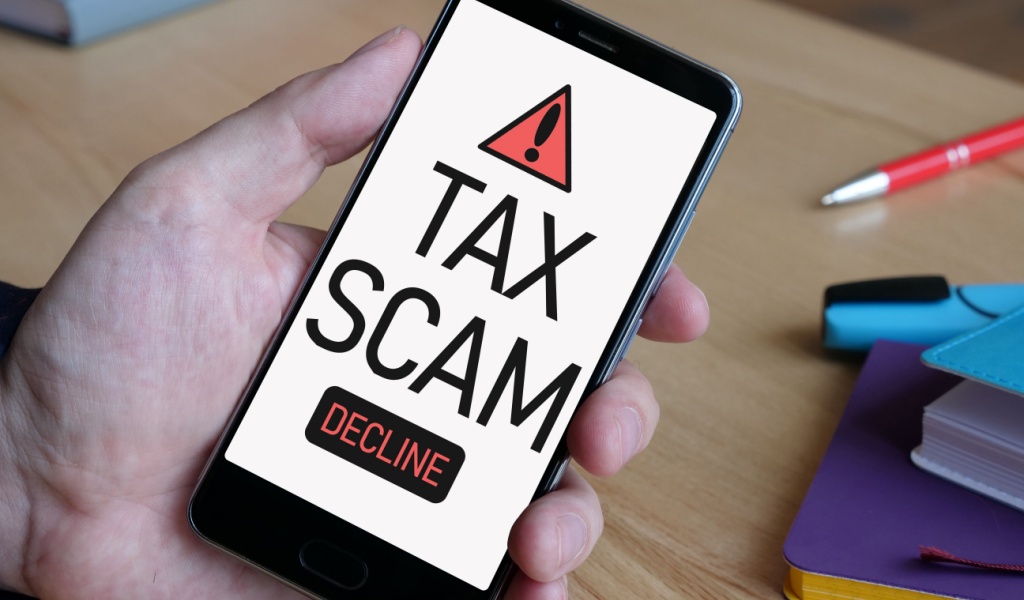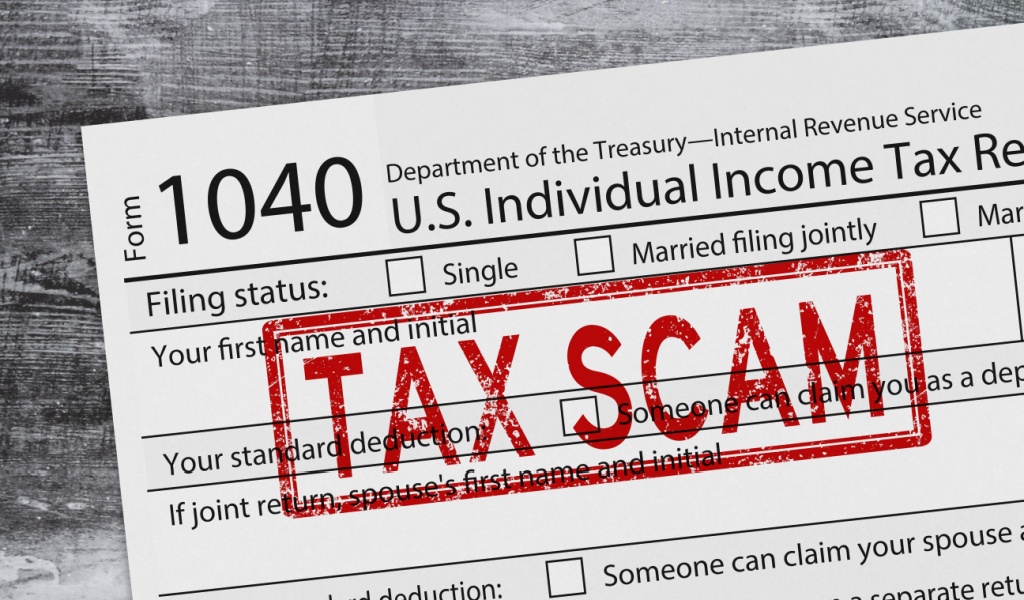That time of the year when taxes are due is always terrifying, and it doesn’t help that this is also when scammers take their best shots. The stress of IRS audits, the pressure to file before the deadline, and the complicated nature of tax law can easily make people fall into the trap of phony schemes. In 2025, tax hustles are growing, becoming more complex and challenging to identify. The best cover is being up-to-date and understanding what to watch out for. Here’s a list of some tax scams to be aware of this year.

Fake IRS Calls and Phishing Scams
One of the oldest tricks, fake IRS calls, remains a serious risk in 2025, too. Crooks pretend to be IRS representatives and use fearmongering strategies to make you believe that you have unpaid taxes or that your refund is at risk if you don’t act fast. They intend to get you to share your personal info or pay using wire transfers, gift cards, or cryptocurrency.
The development of caller ID spoofing technology can make this scam even more risky in 2025. Fraudulent persons may pose as authorized government organizations and use your area code to make themselves look more convincing.
How to Identify:
- The IRS will never make an unexpected call to you, especially requesting payment right away.
- The IRS won’t threaten to arrest you or take legal action over a phone call.
- If you receive an unexpected phone call, hang up and call the IRS directly via their official number.
- The IRS won’t request gift cards or cryptocurrency as payment.
Identity Theft and Fraudulent Filings
Identity theft has been a recurring problem for many years, and tax season is the best time for fraudsters to file false returns using stolen private information. In 2025, fraudsters are using new technology to steal and take advantage of your private information, including hacking your email accounts or shopping websites where you may have saved personal data. These tricksters then file false tax returns and keep the refunds, leaving the victims to bear the penalties.
How to Identify:
- Safeguard your private data with strong, distinct passwords for your online accounts, and enable two-factor authentication whenever possible.
- Always file your tax return as soon as possible to prevent someone else from filing in your name.
- If you get an IRS notice stating that you’ve already filed a return or that there’s an error with your tax details, it may indicate that someone else has filed a return using your info.
Tax Refund Scams
Tax refund cons are widespread during tax season when people eagerly await their refunds. Swindlers usually send emails or messages that look like they’re from the IRS or other tax agencies, talking about some issues. They may ask you to update your personal data or provide proof of your tax return to get your refund. These messages often include a link to a fraudulent website made to gather your personal and financial information.
How to Identify:
- The IRS will never ask for your personal information in random emails or texts.
- Don’t click on any links in these messages. Instead, go to the official IRS website immediately and verify your tax situation there.
- Verify the sender’s phone number or email address, as official IRS messages usually come from a government domain.
Fake Charitable Donations
Scammers try to gain benefits from people’s kindness during tax time. They might appear as charitable or nonprofit organizations and get you to donate money in exchange for tax deductions. These bogus charities may utilize names that sound a lot like well-known organizations, making them seem genuine. They might even use false tax receipts to deceive you into believing your contribution is tax-deductible.
How to Identify:
- Be cautious of coercive methods or unwanted requests for donations.
- Always confirm the charity before making a donation. Verify whether they’re listed with the IRS as a tax-exempt organization via the IRS’s Tax-Exempt Organization Search tool.
- If you’re unsure, donate straightaway to renowned charities that you trust.
W-2 Phishing Scams
Another popular form of fraud involves phishing emails that request employers to forward employees’ W-2 forms, which include confidential personal information. These emails frequently seem to be from a business executive or an HR representative. They’ll request that tax forms be emailed or delivered via an insecure method, which risks your data. This scam is particularly worrisome in 2025, as more companies are functioning remotely, and the trust factor is frequently at a higher level with internal communications.
How to Identify:
- Check for minor errors in the email, like unusual phrasing or incorrect sender addresses.
- If you get an uncommon request, confirm it first by contacting the person or department through an identified phone number or email address.
- Be cautious of emails asking for personal information like W-2s or tax papers, even from a reliable source.
Social Media Scams
Scammers are taking advantage of the fact that more people are turning to social media during tax season to get updates and guidance. Some create counterfeit accounts that imitate tax experts and promise quick refunds or offer guidelines on reducing taxes. These scammers might first attempt to gain the trust of potential targets by providing “free consultations” that may later result in theft of private information or false accusations.
How to Identify:
- Be cautious of astonishing promises or offers promoted through social media.
- Confirm the credibility of any tax expert or service you come across on social media by examining their qualifications and reviews.
- It’s a warning sign if a page or account appears out of nowhere with no previous record.
Fake Tax Preparers
While most tax professionals are reliable, there are always unscrupulous ones looking for an opportunity to exploit weak taxpayers. In 2025, we’re experiencing a rise in scams related to fake tax preparers who guarantee huge refunds for a small fee, only to rob your money and file a false return under your name. Some of them even use social media profiles or websites that look genuine to win your trust.
How to Identify:
- Look for any warning signs, like unrealistically low charges or a lack of qualifications.
- Ensure the tax preparer has a license and a Preparer Tax Identification Number (PTIN), which the IRS mandates.
- If the preparer forces you to file quickly without giving you time to think or check the paperwork, it’s likely to be a hoax.
- Stay away from people who guarantee massive returns without even looking at your tax records.
Conclusion
As tax season is looming, it’s important to be alert and mindful of the numerous scams that can try to exploit you. Scammers are becoming more inventive, but you can protect yourself by following standard practices and staying up-to-date. Always check the source of any unwanted message, analyze tax specialists, and never convey private information over the phone or email without verifying the request. If something doesn’t feel right, it probably is. Follow your instincts, and never let swindlers steal your hard-earned money!




